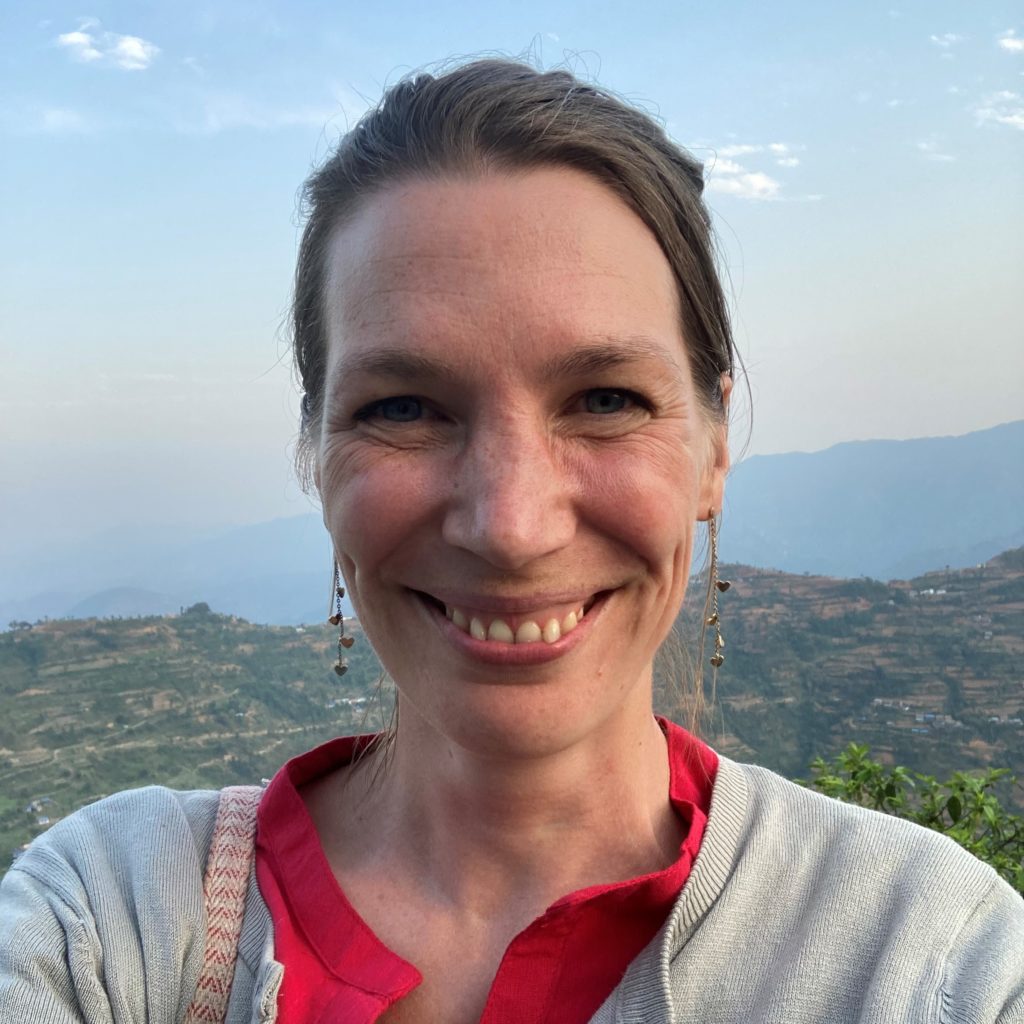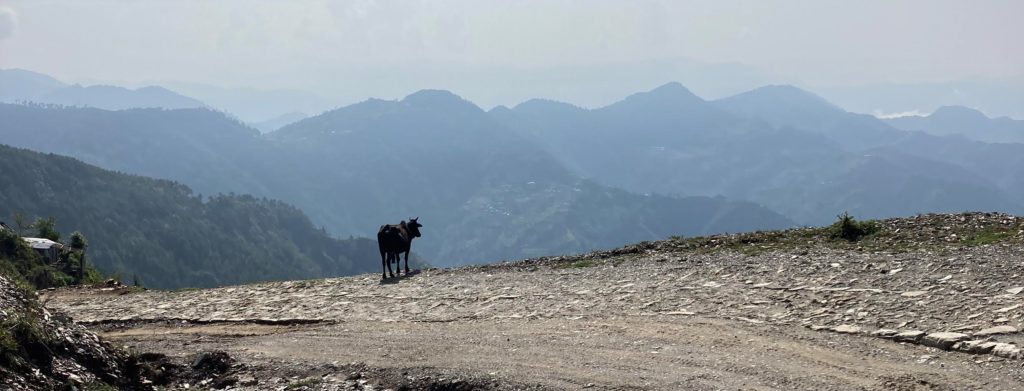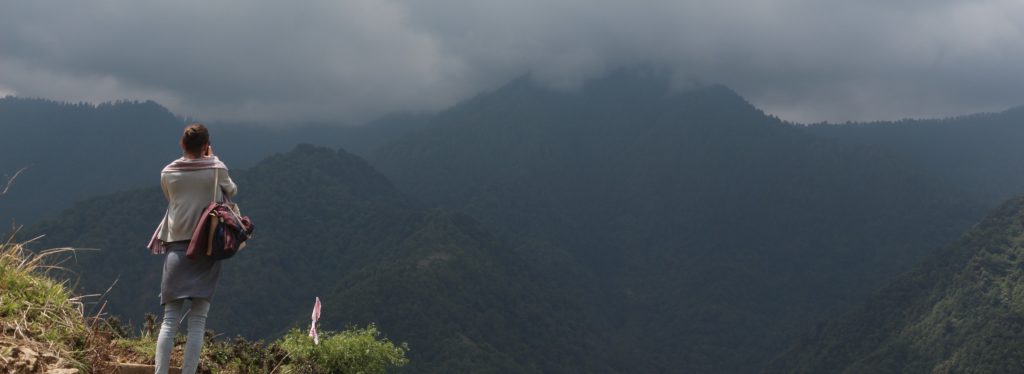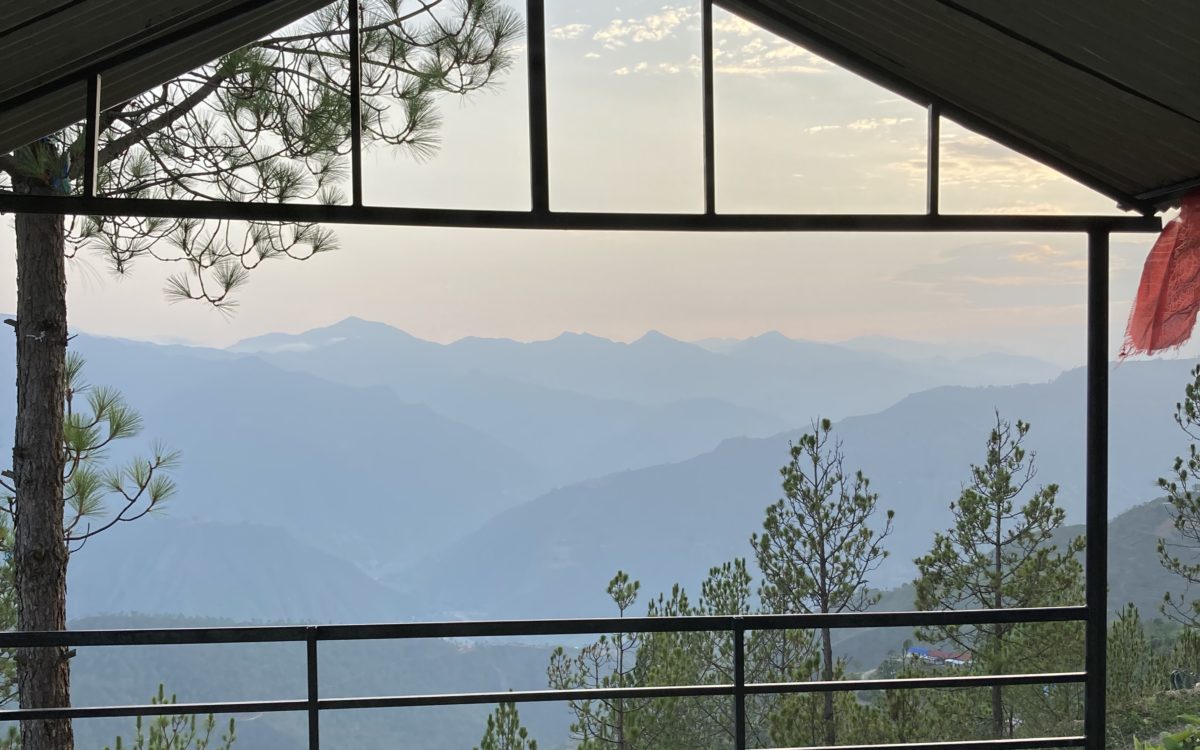
Hanna Ketola
‘What I did not expect is that interview encounters might feel different because of the kinds of small connections that can emerge when you start sharing around themes of love, responsibilities, children, work, commitment and how these different small connections would become in powerful ways intertwined with the stories of war that I was listening to…’
How is it to return to do research again in the ‘same’ context after almost a decade? What does it mean when the interview encounters feel different? How to reflect on this feeling when writing about evolving ‘post’-war environments?
I spent last May in Nepal doing research that involved meeting and interviewing people who had been in various ways engaged in the Maoist movement during Nepal’s ‘People’s War’ (1996-2006). This was part of my role as a Post-doctoral Research Associate in the Civil War Paths project and included travelling to the Mid-Western and Eastern hills, to the districts of Rolpa and Ramechhap that were Maoist strongholds during the war. I met with and interviewed people who had been political leaders and activists, artists (dancers, singers, painters), health workers as well as fighters in the People’s Liberation Army (PLA). I was accompanied by Nabin Bibhas, a journalist and a novelist whose knowledge and insights into the Maoist movement and the history and culture of Rolpa were an absolutely crucial part of the research journey. The next blog post we will write together will offer glimpses into some of the encounters and highlights from our travels. However, I wanted to first reflect on what it means to ‘return’ to a research context.
The last time I had done this type of research – travelled outside Kathmandu, met with people who had been involved in the Maoist movement and conducted interviews – was for my PhD. And it was nine years ago. Nine years is a long time. It is a long time in terms of how the broader ‘post’-war context in Nepal has evolved, and it is a long time in terms of the personal lives of the people whom I met – and my own. As part of the Civil War Paths project, tracing the various shifts and continuities in the post-war environment will be a crucial part of my analysis of the fieldwork material. I also hope to meet again some of the same people whom I interviewed for my PhD research during my next trip in November that will take me to the Southern plains. Whilst the more in-depth analysis will need to wait, I want to reflect on why the research encounters felt so different. I want to do this now when things are still fresh (and perhaps less neat) in my mind and later make these reflections part of my analysis.
By feeling different, I mean that there was a different emotional quality to the interviews themselves than during my PhD research, both in terms of the ways people told their stories and the kinds of emotions that emerged through the encounters and circulated between us. I was struck by how the stories from the time of war were often full of energy, occasional laughter and jokes, and feelings of accomplishment – often specifically voiced as being proud of or happy about individual and collective achievements and contribution to the cause. Reflecting back to my doctoral fieldwork nine years ago, I wondered why these kinds of narratives were not such a prominent part of the interviews then. Did I not ask the ‘right’ questions about the war? Was it something about the life history approach I was using this time that specifically prompted these kinds of stories? But perhaps most importantly, was it different for the people I met this time to visit those memories and stories some said were ‘difficult to remember’ or were about ‘old things’?

What also emerged across the interviews were moments when energetic, flowing, and up-beat recollections about war time took a sudden turn towards palpable sadness, often tears. This turn often emerged after a follow-up question about friendships built during the war when living underground, or alternatively, questions about family – for example, whether it had been possible to keep in touch with family members during the war. It first took me by surprise that such heightened emotions were a reoccurring part of the interviews. As Nabin also mentioned, he was surprised that all these emotions were coming out – especially when we were asking ‘small questions’, meaning questions about life trajectory, friendships and family. I think I was surprised because this kind of sadness, or at least a more ‘open’ expression of it, was not part of the interviews nine years ago that I had with women who had been in the PLA. In those interviews there were indeed strong emotions, but the underlying current was frustration and anger – crystallising as powerful critiques of the leadership of the Maoist party. I remember vividly that one person cried during their interview because it was only that one time.
As I realised there was this kind of emotional quality to the interviews, I tried to draw on previous experience and training, but most importantly to just be present and listen and find a way to navigate the situation that worked best for the person in question. I hope that in the process, I learned more about how to do this, especially following the intricate and sensitive way in which Nabin engaged with these encounters. What I found this time was that it was important to allow for the possibility that the person might not want to have a break but rather want to go on, to finish what they were narrating and to express what needed to be expressed. Reflecting back to my PhD research, I am not sure whether I am ‘better’ at any of this, but I think this time I perhaps had more courage to just be present and to allow for different possibilities to address each situation.

But what do I think is going on then – why was there such a different feeling to these encounters? One part of answering this question will be to examine what shifted or not, and how, in the broader post-war context in the past decade. Linking to the Civil War Paths project, this will mean not only tracing the trajectories of the people who participated in the Maoist movement throughout the post-war context, but also the ways in which these trajectories are intricately linked with the changing interactions between the Maoist party/ies, their constituencies, the state and international actors.
The reason why I want to hold onto the realisation that there was a different feeling to the encounters is that this feeling connects the broader political context with the emotional and affective being of the people who are living through it. It also centres rather than ‘sweeps away’ (Sylvester, 2012) the life trajectories not only of the people who are sharing their stories but also mine. After all, it is me who came out of these encounters feeling different from the last time. So perhaps before launching into a full-blown analysis of the interview material it is good to pause and think how I might have returned to Nepal different.
Since the last time, I had finished my PhD and had two children. When conducting interviews in 2013, I was pregnant with my now eight-year-old son. In my thesis I wrote about meeting with women who had fought in the PLA and the kind of stories as well as advice that they shared with me about pregnancy. I remember how I found it hard to trust that those encounters were ‘valid’ – that they were an important part of the long process of reflecting on and writing up the research.
What struck me this time was something quite different. What I realised was that the ‘absence’ of my children (I admit exhilarating at times, especially at the beginning of the month-long trip before I started missing them badly) became poignant in the research encounters. What I mean is that this absence – the fact that I had children and that my daughter is as young as two but not with me – became a point of connection. It was something that people wanted to talk about, to ask questions about and reflect on their own experiences. I think these conversations were incredibly important for the research, but also it was touching to be asked questions such as: “How do you feel doing this as a mother when your children are not here?” “Could you talk to my wife who is returning to work as a teacher but not sure how that will feel as our daughter is still young, how to manage?” When I left for Nepal I did not expect this to be such a prominent theme. And yet, of course, it was. My focus in the broader Civil War Paths project is on the role of familial ties in civil wars. It seems paradoxical to me now that I did not realise that it would be meaningful in the research encounters that I had had children since the last time. That it would change something. I know that my own interest in familial ties emerges from various personal as well as academic experiences. What I did not expect is that interview encounters might feel different because of the kinds of small connections that can emerge when you start sharing around themes of love, responsibilities, children, work, commitment and how these different small connections would become in powerful ways intertwined with the stories of war that I was listening to.

